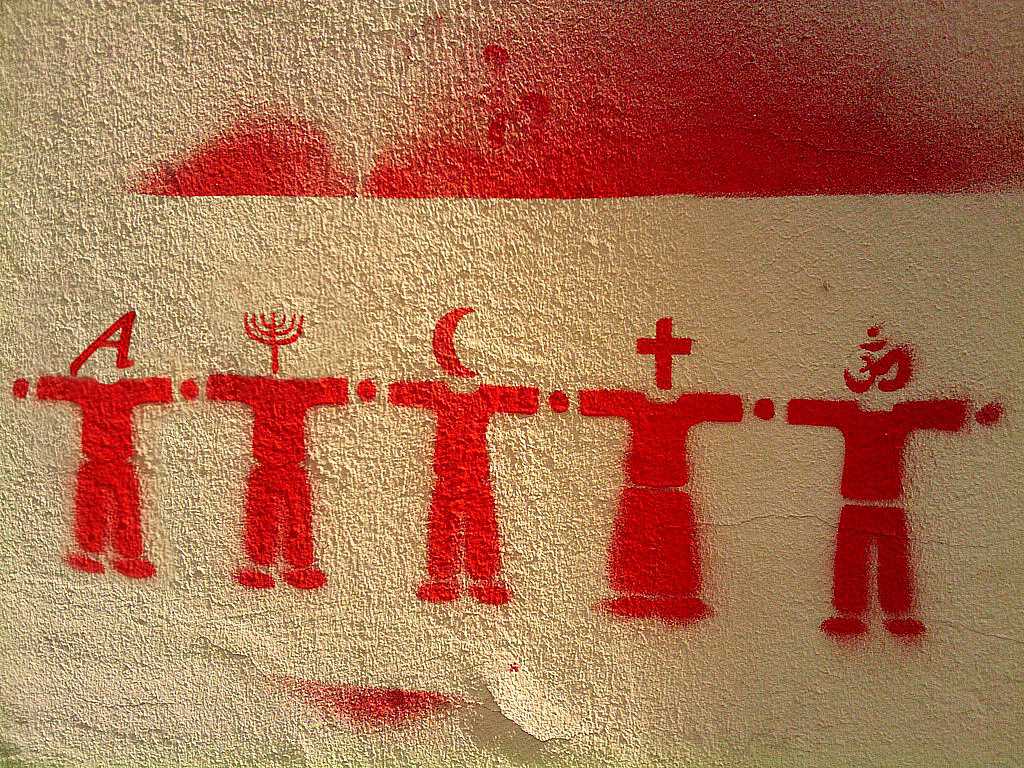A week ago if your only source for daily news was a right-wing news outlet, you might have thought President Obama made a public address wearing a Che Guevara t-shirt. Obama’s recitation of Lincoln’s Gettysburg Address for an anniversary documentary omitted the words “under God.”
The left quickly pointed out that the original version of the speech doesn’t include the words “under god.” This isn’t a surprise to anyone familiar with Lincoln’s secular preferences. However eager conservatives were to cook a scandal, Democrats were agile in sidestepping a PR fallout.
But similar omissions aren’t unusual for Obama. He’s encountered implacable derision from the right for dropping “creator” from the line “…endowed by their Creator with certain unalienable Rights” in his recitations of the Declaration of Independence. It’s widely reported he has religious symbols covered at the sites of his speeches.
In his address on Religious Freedom Day, Obama pointed out, “As our Nation has grown, so too has its diversity of faiths, cultures, and traditions;” and “Our long history of religious tolerance and pluralism has strengthened our country, helped create a vibrant civil society, and remained true to the principles enshrined in our founding documents.”
Although he identifies as a Christian, publicly it’s nominal. Obama has made his intentions clear; when it comes to the conservative trend of religious homogeneity, he’s no George W. Bush.
Obama’s vision of a religious municipality isn’t lost on his worst critics, largely comprised of Evangelical Christians. This demographic makes up about a third of the national base of Christians.
The most zealous of these are regulars on national headlines, imagining the removal of prayer from school is a usurpation of the First Amendment rights which grants them free exercise of their religion. Unfortunately, this same group excels at forgetting the Establishment Clause of the same Amendment–“Congress shall make no law respecting an establishment of religion.”
That clause is already threatened by American civil religion. The sociological theory that there is a nonsectarian faith of Judeo-Christian origin with a shared value system was advanced by professor Robert Bellah in the ’60s.
The evidence for Bellah’s theory isn’t lacking. Doubt about religious monopoly in America is met with recurring reminders like, “America is God’s chosen nation today,” “God Bless America,” “In God we trust,” “…under God, indivisible.”
If Obama is interested in the religious pluralism he professes to be, and that influential political trailblazers like John Locke, Thomas Jefferson, and Abraham Lincoln envisioned, it’s clear he has a lot of work ahead of him. But if this isn’t news, why is it a problem?
Republican provocateur Sarah Palin recently released a book defending the preservation of Christmas’ religious origins in the public sphere. Democrats downplay notions of a “War on Christmas” because of the implication that they’re actively invested in the destruction of a national holiday, rather than more subtly modernizing a tradition that could potentially undermine multicultural sensitivity.
The Christian-right’s strident claims about a “War on Christmas” usually sound like a badly veiled defense of mainline Judeo-Christian values.
In a NYTimes article in 2009, Mathew D. Staver, founder and chairman of the conservative law firm Liberty Counsel, took umbrage with any attempts to balance the holiday: “It is the ultimate Grinch to suggest there is no God during a holiday where millions of people around the world celebrate the birth of Jesus Christ. It is insensitive and mean.”
The statement assumes everyone is on board with the idea that the creator of the universe curiously made his first appearance after tens of thousands of generations of people had come and gone, and that he only answers the phone for his favorite religion, while some kid born in a Central American Cloud Forest village who gets a different phone number altogether is out of luck. You add the problem of suffering to the equation, and in terms of sound reasoning, Mr. Staver is asking a lot from a voting public whose non-Christian, and non-religious numbers are on the rise.
It’s hard to imagine Mr. Staver similarly tip-toeing around the suggestion that someone’s belief in gnomes powered their celebration of a gnome solstice. Because we have as much corroborating evidence for the exitence of gnomes that that we have for the god of every other religion–none.
The Stavers and Palins aren’t really offended, but they’re good at feigning it. They feel threatened when asked to legitimize preference for the holiday as a national brand, rather than a Christian one. But if Obama is right, and religious pluralism is our goal, then maybe their feeling threatened is a good thing.






































































